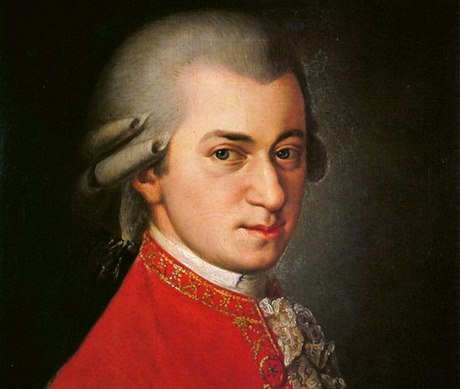Radek Baborák came to Mozart early – “just after my second teeth,” he says. The Pardubice native started studying French horn when he was eight years old, and like all horn students, was soon assigned the Mozart horn concertos.
“The pieces that Mozart composed for horn are very well-written, but technically they are not difficult – children can perform them very well,” he says. “So if you're a horn student, it's one of the first things you learn.”
But that has its drawbacks. “I played them many, many times, especially in the competitions, and I grew to hate them,” Baborák admits. “Finally I needed a break, so I didn't play them for two years.”
Which makes Baborák an interesting choice to lead the National Theater's annual Mozart Birthday Concert at the Estates Theater on Friday night (Jan. 27). Needless to say, his opinion of the composer has changed: “Mozart wrote in many genres, and everything he wrote was genius.” Accordingly, Baborák has made two horn concertos (Nos. 1 and 3) the centerpiece of an all-Mozart program that opens and closes with symphonies (Nos. 32 and 40, respectively) and includes a tasty divertimento (No. 7) for two horns, bassoon and strings.
What makes Baborák even more interesting is that he's not only playing in the program – he's conducting it. The dual role is a stretch even for a virtuoso player who at the age of 35 has held prestigious chairs in the Czech Philharmonic, Munich Philharmonic and Berlin Philharmonic orchestras. But it's in keeping with a career that he's recasting after being away from the Czech Republic for 13 years.
Baborák cut a brilliant swath through the Czech classical music scene when he was still young. He was giving public performances in his hometown by the age of 10, and two years later won the Concertino Praga Radio Competition, the first of many awards. At the age of 18, he was handed the principal horn seat in the Czech Philharmonic with no audition. In 1996 he left the country to take similar positions in Munich, Bamberg and Berlin.
It was a spectacular career arc, but by 2010 other considerations had moved to the fore. Baborák has two young daughters that he wanted in the Czech education system, and growing up amid their extended family – including him. “They need me now, not when they're 17 or 18,” he says. The Berlin orchestra had also become all-consuming, leaving him no time to do anything else. “I am enjoying much more being freelance,” he says. “I can do what I wish, like make plans for summer and winter and my birthday.”
And indulge a long-neglected passion. Baborák studied conducting when he was at Prague's Academy of Performing Arts, but not for long, as it quickly became impossible to juggle that and a career as a soloist. When he returned to the city as the Prague Symphony Orchestra's artist-in-residence for the 2010-11 season, he plunged back into conducting “like jumping into cold, deep water,” with no additional training or preparation.
His role model in this endeavor is Daniel Barenboim, the classical superstar who moves seamlessly between the podium and the piano. “I admire him, and I have tried to follow him,” Baborák says. “This is my dream, not to put the horn in a corner when I'm conducting, but play as well.”
Though he's conducted fewer a dozen times since returning to Prague, Baborák says his efforts have been well-received by his peers. “The musicians respect me much more because they know that I play an instrument,” he says. “I'm not someone just pushing them to do certain things. It's like ice hockey – if you have a coach who was a player, then the players respect him more.” ‘I respect Mozart's music very much, so I don't try to put something special in it, or do a historical interpretation, like they played 200 years ago.’
As for how he will interpret Mozart, Baborák nods and says, “This is always the question.” Though he was expecting it, he has a hard time answering it. “I respect Mozart's music very much, so I don't try to put something special in it, or do a historical interpretation, like they played 200 years ago,” he says. “The music must be naturally clean, elegant and colorful. But I don't know how to describe my interpretation. I can't explain what I do, not even in Czech.”
Does he consider conducting Mozart a challenge? “All concerts are a challenge, whether you're playing as a soloist or conducting,” he says. “I'm not trying to change the orchestra, or how they play. We'll do our best to perform Mozart's music, and hope it's brilliant.”
Which doesn't mean that he's taking the concert lightly. Baborák is in intensive rehearsals with the National Theater orchestra all this week, and clearly feels an obligation to produce a memorable celebration.
“Many performances are very good quality, but nothing special,” he says. “If people are bored and looking at their watches, we haven't done our job well, and we will lose the audience. You can see all these orchestras now on the Internet or DVD. But it's like soccer. You can stay home and watch Madrid on TV, or you can go out and see your local team. And if they play with spirit and drive and feeling, then it's something special.”
Mozart’s Birthday 2012
Friday, January 27, at 7:00 p.m.
The Estates Theatre
www.narodni-divadlo.cz
— Frank Kuznik is a Prague-based freelance journalist




